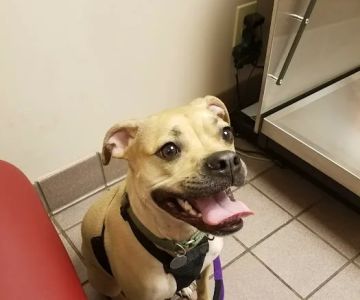What is Veterinary School and Why is it Important?
Becoming a veterinarian is a rewarding career path that requires dedication, passion for animals, and a strong desire to help those in need. If you're someone who has always dreamed of working with animals, you might have heard of veterinary school but aren’t sure exactly what it entails. Veterinary school is a specialized educational program that prepares individuals to become veterinarians, or animal doctors, who diagnose, treat, and prevent diseases in animals.
As someone who has worked closely with professionals in the veterinary field, I can tell you that the journey to becoming a veterinarian can be both challenging and fulfilling. In this article, I'll walk you through everything you need to know about veterinary school, including the application process, courses, and what to expect in terms of workload. Whether you’re considering veterinary school or just curious about the profession, you’ll find valuable insights here.
1. The Basics of Veterinary School
Veterinary school is a rigorous educational program designed to train students in all aspects of animal care. It typically lasts for four years, following the completion of a bachelor's degree. During this time, students will study subjects such as biology, anatomy, pharmacology, surgery, and animal husbandry, among other topics. Some schools even offer specialized programs focusing on certain species or types of medicine, such as small animal, large animal, or exotic animal medicine.
One thing I’ve learned through my research and personal experiences with veterinarians is that veterinary school is intense. Students are expected to absorb vast amounts of information in a short period of time. The workload is heavy, and students are expected to apply what they’ve learned through hands-on experience in clinical settings. If you're someone who enjoys challenges and has a strong work ethic, this is a field where you can truly thrive.
2. How to Get Into Veterinary School
Getting accepted into veterinary school is no easy feat. Admission is highly competitive, with many programs accepting only a small percentage of applicants each year. Most veterinary schools require a bachelor’s degree, with a strong academic record, particularly in science courses. These courses include biology, chemistry, physics, and math, which are critical to understanding the complex concepts in veterinary medicine.
In addition to a solid academic foundation, prospective veterinary students should also gain practical experience with animals. Many applicants volunteer at animal shelters, intern at veterinary clinics, or work with veterinarians in some capacity to gain hands-on experience. This experience not only helps strengthen your application but also allows you to explore different aspects of veterinary care.
One key piece of advice I received from a veterinarian I met during a tour of a local clinic was that networking and having good references can make a significant difference in your application. A well-rounded resume that includes both academic achievements and real-world experience is often what sets candidates apart.
3. What to Expect in Veterinary School
Once you’ve been accepted into veterinary school, you can expect to undergo an intense and demanding program. The first two years are typically focused on classroom learning, with courses covering subjects like biology, pathology, pharmacology, and microbiology. During these years, students are also introduced to clinical skills, learning to perform basic examinations and procedures under the supervision of faculty members.
The final two years of veterinary school are more hands-on, with students spending a significant amount of time working in veterinary clinics and hospitals. This is the time when you’ll gain practical experience treating patients, performing surgeries, and making diagnoses. Many veterinary schools also offer internships or externships at animal hospitals, research centers, and zoos, which can further enhance your training.
4. The Different Types of Veterinarians
Not all veterinarians are the same, and this is something that many prospective students don’t always realize. Veterinary school can lead to various career paths depending on your interests. Some veterinarians choose to work with small animals, primarily household pets like cats and dogs, while others specialize in large animal care, such as cattle, horses, and sheep.
Exotic animal medicine is another field within veterinary care. Veterinarians specializing in exotic animals work with species such as birds, reptiles, and zoo animals. Other specialties include wildlife conservation, equine medicine, and even veterinary pathology, where vets work with diseases in animals. Each specialty requires additional training after completing veterinary school, but it’s important to know that the opportunities are vast.
5. What Makes Veterinary School Different from Medical School
Many people often compare veterinary school to medical school because both fields deal with health and medicine. However, there are significant differences between the two. For starters, medical school focuses solely on human health, whereas veterinary school covers a wide range of animal species. This means that veterinary students must learn about various species’ anatomy, diseases, and treatments, making their education broader than that of a traditional medical student.
Additionally, veterinary students are required to work with different animal species, each with their own set of health concerns and characteristics. As a result, the training in veterinary school is very diverse and requires a deep understanding of animal physiology. Some students may feel overwhelmed by the sheer volume of information they must learn, but those who are passionate about animals will find the challenge worthwhile.
6. The Path After Veterinary School
After completing veterinary school, graduates must pass national and state exams to become licensed veterinarians. This process can take several months, and you must also meet specific state requirements before you can practice. After passing the exams, new veterinarians can choose to work in private practice, animal hospitals, research institutions, or even in public health or government roles.
Another option after veterinary school is to specialize further. Many veterinarians choose to undergo residency training in a specific field, such as surgery, dermatology, or cardiology. Specialization opens up more opportunities for advanced care and higher-paying roles, but it also requires additional years of study and hands-on experience.
7. Why Veterinary School is a Great Investment
Becoming a veterinarian is a significant investment, both in terms of time and money. However, the rewards are worth it for many individuals. As a veterinarian, you have the ability to help animals, educate pet owners, and even make a difference in wildlife conservation. The field offers a variety of career opportunities, and as the demand for animal care continues to grow, veterinarians are in high demand.
If you are passionate about animals and want to make a career out of caring for them, veterinary school is an incredible opportunity. It may not be the easiest path, but it’s a career that offers fulfillment, financial stability, and the ability to make a real difference in the world.
If you’re ready to take the next step in your veterinary journey, be sure to explore available resources at Hidden Brook Veterinary to find expert advice, services, and support tailored to your needs.











